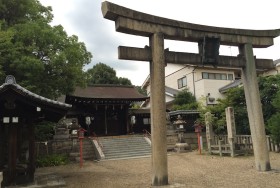
The jury is in: the US federal government has bungled the pandemic. So what in the world could a couple of Californians steeped in the Silicon Valley models of prototyping and entrepreneurism possibly offer to other countries seeking ideas and best practices for revitalizing economies? The power of storytelling and messaging in a crisis.
This Tuesday I will join Chris Hsiang of Panorama Growth, my colleague here in the San Francisco Bay Area, to talk about “Leading through Storytelling” for several hundred members of the Asian Productivity Organization (APO), a large intergovernmental group encompassing 21 economies from Japan to China and Vietnam. Many of these nations have demonstrated excellent leadership. Vietnam, Thailand and Taiwan, to name just three, have seen precious few cases. They acted fast. They got the word out, and faced with lockdowns and effective healthcare, the virus ran out of hosts.
Quite simply these countries embraced the fast-prototyping, San Francisco/Silicon Valley model for action. Now it’s onto the region’s next challenge. How to use a deeper understanding of effective storytelling and communications to smartly open up economies and increase productivity. Restarting tourism and business demands measured, science-based steps. But it’s also about how you tell that story.
To put things in perspective, we’ll start our online talk with leadership. I wrote a small book about Winston Churchill, perhaps the most versatile and successful political storyteller in history. Churchill mastered the technology of his day, dictating his prolific speeches and memos. He blasted out radio broadcasts to steel a nation facing imminent invasion. These noble words are just as relevant now as when they set the tone for a nation about to endure the greatest test of its collective resolve. Churchill delivered his famous Blood, Sweat, Tears and Toil speech on May 13, 1940 in the House of Commons setting out the goal of “victory, however long and hard the road may be” then followed with his “We Shall Fight on the Beaches speech on June 4, and finally on June 18, his “Finest Hour” speech. With a message both uplifting and sobering in the tremendous commitment he demanded of his military and people, Churchill’s words – his story – set a high bar for bravery and communal self-sacrifice that the nation rose up as one to meet.
Telling a Story For a Different War
Our need for such courageous, inspiring stories and leaders has not disappeared. We are fighting a different war against a no less ominous enemy. Coronavirus kills mercilessly. But the virus can be ruinous to a country’s reputation, ability to attract tourism, and overall economy. Getting that story right for your country, (both proactively and responsively) may be the single most important task of a leader in 2020 and 2021. To that end, Chris and I will be talking about some impressive entities who met the crisis with stories that demonstrated leadership – from the VC firm Sequoia Capital to the McKinsey consultancy, and tiny Portugal. What did they all have in common? Each was early and bold in getting their story out, in taking a stand.
There’s a reason why Silicon Valley, and the San Francisco Bay Area have led in innovation, technology, and business savvy. It all starts with the free flow of people and ideas. We’ve benefited from a steady stream of students from great universities like Stanford and my alma mater UC Berkeley. Our open, entrepreneurial mindset has been a magnet for the world’s top talents. Great startups and tech giants have sprung up here in large part because we never built a seawall. Ambition doesn’t stop at our shores. Our western edge is the Pacific, our ties to Asia go back to the Gold Rush and they are real and enduring. That spirit of collaboration won’t be stopped by this crisis.
Chris, with deep experience in Asia both as a lawyer and corporate growth advisor, will share her thoughts on what she calls Citizen Innovation, a new model for public-private partnership exemplified by several nations where governments are establishing solid communication channels into the wider entrepreneurial and tech community for true public engagement – both in identifying problems and in collaborating on solutions. Chris will further speak to some of the important tactical considerations for digital communications in our era – the critical tech platforms for storytelling vary widely in the region and target distinct demographics.
We’ll also cover Reimagining and Scenario Planning, a process for identifying key uncertainties during the crisis, and then establishing key sign posts and hypothesis to help teams and citizens prepare and take action to meet the future. Many Asian nations and cities are adopting an intelligent, science-based strategy to managing the crisis. That foundation has been excellent preparation for what’s next: the deployment of what we call a design thinking mindset. Today, the challenge is to develop a professional, agile communications capability. To create stories and messaging in an iterative, fast-moving environment that support the thoughtful prototyping and execution of the key elements necessary to safely and successfully open for business and tourism.
Tune in this Wednesday evening for an inclusive, innovative approach to reignite economies. Chris and I are looking forward to a spirited interactive chat session. Bring your thoughts and ideas!


